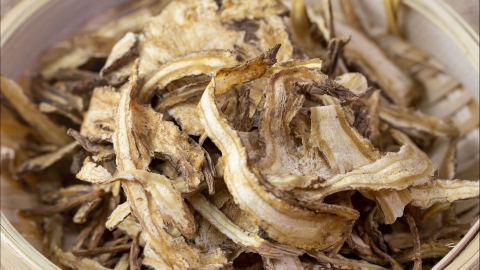Does Rehmannia glutinosa (Shu Di Huang) and Codonopsis pilosula (Dang Shen) reduce fire (heat) in the body?
Rehmannia glutinosa, angelica sinensis, and codonopsis pilosula generally do not reduce internal heat. If discomfort occurs, it is recommended to seek medical attention at a hospital promptly and follow the doctor's instructions for treatment.

In traditional Chinese medicine theory, these three herbs—Rehmannia glutinosa, angelica sinensis, and codonopsis pilosula—are primarily used for nourishing blood, enriching yin, and boosting qi, rather than directly reducing internal heat. If symptoms of excessive heat or damp-heat are present, such as mouth ulcers, dry stools, or short, dark urine, using Rehmannia glutinosa, angelica sinensis, and codonopsis pilosula alone may not be effective and might even exacerbate symptoms due to their greasy and nourishing properties. In such cases, other heat-clearing and detoxifying herbs, such as coptis and scutellaria, should be combined in the prescription.
Rehmannia glutinosa itself does not have the effect of reducing internal heat. Excessive dosage or prolonged use may even cause symptoms of heatiness, such as mouth ulcers and sore throat. Angelica sinensis also does not have heat-reducing properties; improper use may lead to symptoms of heatiness, such as dry mouth and throat pain. Codonopsis pilosula has functions of strengthening the spleen and lungs, nourishing blood, and promoting body fluid production, but generally does not reduce internal heat.
Attention should also be paid to adjusting dietary habits and lifestyle during medication to promote drug absorption and body recovery.








